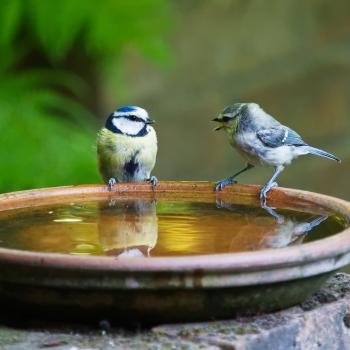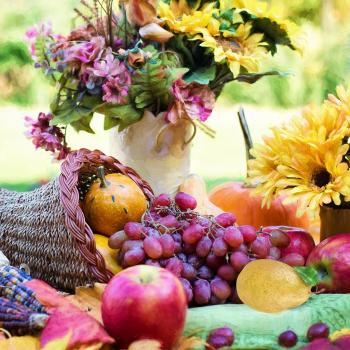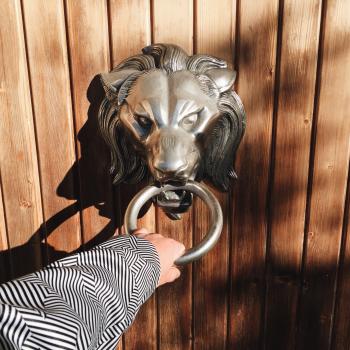Imbolc is coming up soon (Jason has a solitary ritual up on his blog). I’m currently memorizing the poetry for the Imbolc ritual I’ll be performing, though ours will be held a bit early. The ritual is one I pieced together after browsing through some books and articles. Putting together a ritual is always an interesting exercise, but lately I’ve been contemplating authenticity as it applies to group rites.
What Kind of Authenticity?
Authenticity has a few meanings. When we talk about authentic ritual or authentic spiritual practice we may be talking about lineages or traditions. Nothing I do is authentic Gardnerian Wicca because I’m not a Gardnerian initiate. I don’t know that I would label anything I do ‘authentic’ in the sense of it being from some sort of ‘undisputed origin’. The rituals I make for group are eclectic hodge-podges. The Otherfaith practices I stir up are equally eclectically based, with influences from the spirits themselves until the practice turns out just right.
The Imbolc ritual I wrote may not be authentic in the sense that it came from a single tradition. But, like soup made from assorted food in the kitchen, it can come out well if you know what you’re doing.
(Hopefully I know what I’m doing!)
There is another kind of authenticity that gets brought up in spiritual groups, though. Authenticity as a form of sincerity and honesty. True to one’s self. In ritual practice this could mean only incorporating things you agree with, the parts that resonate with you or the Gods you serve. An authentic ritual stays with you, makes you want to return to it, unlocks parts of you that you kept away. It connects you with the Gods. It removes blocks in your life and devotions. Authentic ritual is not merely rote repetition or empty words.
Right?
The Daily Practice
When I get up in the mornings, I usually perform devotions to the Gods. These are mainly simple prayers, many from Ceisiwr Serith’s ‘A Book of Pagan Prayer’. I light candles and incense and pour water out for the Gods. This practice helps start and end my day right. I maintain right relationship with the Gods and spirits, and I get my mindset in order before facing the world.
Some days this morning practice goes ridiculously well. I can feel the Gods answer, tingling along my back and spine. The words I speak hit my heart, even though I’ve been saying them for years.
Other days I plop down in front of my altar and pray and that’s it. It’s practically autopilot at this point. By the end of my prayers my head is usually on a bit better, but I am absolutely in a ‘rote repetition’ mindset when I begin.
Should I only perform my devotions when I’m ‘feeling it’? It isn’t an uncommon sentiment within our Pagan communities (and other religious communities) that devotions and ritual should be heartfelt. Usually this is to assure newcomers that they don’t need to do every single ritual right away; instead they should build a practice that resonates with them. Sometimes this idea goes further: we should only perform ritual or devotion when we mean it. And while I do agree there are certain rites that one should be in the proper frame of mind for, not to mention cleansed and otherwise ritually prepped, part of building a daily practice is accepting that you aren’t always going to feel in the mood.
Showing up to the altar consistently, regardless of my mood, builds a foundation that allows me to more easily tap into the calm and stillness I need for deeper devotion.
Saying the Right Words
That has to do with private practice. What about public, group ritual?
I’m not Wiccan, but the ritual I’m performing is definitely Wiccan-ish. I’m using prayer and poetry from Scott Cunningham’s Wicca: A Guide for the Solitary Practitioner. I’m relying on rituals written and created by Wiccans. Ideally the ritual I created will be familiar enough to someone with a passing grasp of modern Paganism – which is predominantly Wiccan/ish – that they would feel comfortable dropping in.
So how authentic is it?
My aim is a ritual that honors and calls to the Gods being worshiped, that allows the participants to touch something outside of themselves, that creates a positive feeling and furthers the group’s connection. The ritual is meant to honor the shifting of the season, the first inkling of heat in the earth sprouting up.
Does it matter that I’m not an initiated or self-dedicated Wiccan? (Does a self-dedication performed in my early teens count? Who does it count to?) Does it matter that I’m using someone else’s words? What would make the ritual authentic?
Does it need to be?
(Though the site is no longer active, I am participating in the ‘Pagan Blog Project’. The PBP encouraged writers to write throughout the year, focusing on prompts based on the letters of the alphabet. For the first ‘A’ prompt I chose, well, ‘authenticity’.)












